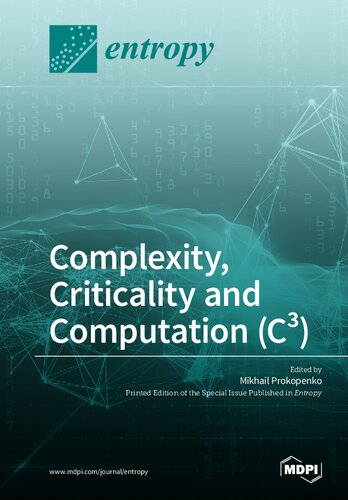

Most ebook files are in PDF format, so you can easily read them using various software such as Foxit Reader or directly on the Google Chrome browser.
Some ebook files are released by publishers in other formats such as .awz, .mobi, .epub, .fb2, etc. You may need to install specific software to read these formats on mobile/PC, such as Calibre.
Please read the tutorial at this link: https://ebookbell.com/faq
We offer FREE conversion to the popular formats you request; however, this may take some time. Therefore, right after payment, please email us, and we will try to provide the service as quickly as possible.
For some exceptional file formats or broken links (if any), please refrain from opening any disputes. Instead, email us first, and we will try to assist within a maximum of 6 hours.
EbookBell Team

4.8
74 reviewsComplex systems is a new approach to science, engineering, health and management that studies how relationships between parts give rise to the collective emergent behaviours of the entire system, and how the system interacts with its environment.
A system can be thought of as complex if its dynamics cannot be easily predicted, or explained, as a linear summation of the individual dynamics of its components. In other words, the many constituent microscopic parts bring about macroscopic phenomena that cannot be understood by considering a single part alone ("the whole is more than the sum of the parts"). There is a growing awareness that complexity is strongly related to criticality: the behaviour of dynamical spatiotemporal systems at an order/disorder phase transition where scale invariance prevails.
Complex systems can also be viewed as distributed information-processing systems. Consciousness emerging from neuronal activity and interactions, cell behaviour resultant from gene regulatory networks and swarming behaviour are all examples of global system behaviour emerging as a result of the local interactions of the individuals (neurons, genes, animals). Can these interactions be seen as a generic computational process? This question shapes the special issue, linking computation to complexity and criticality.